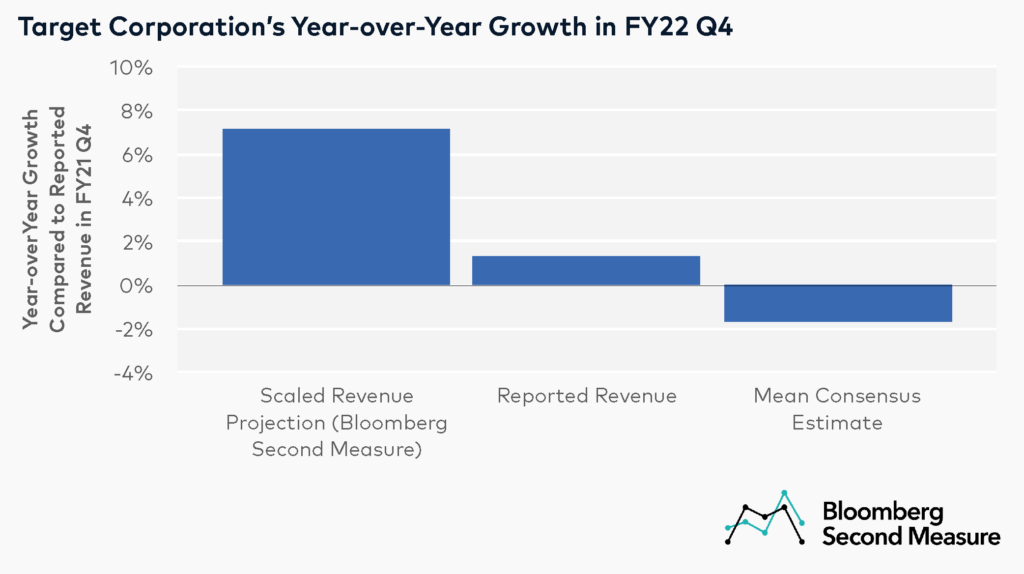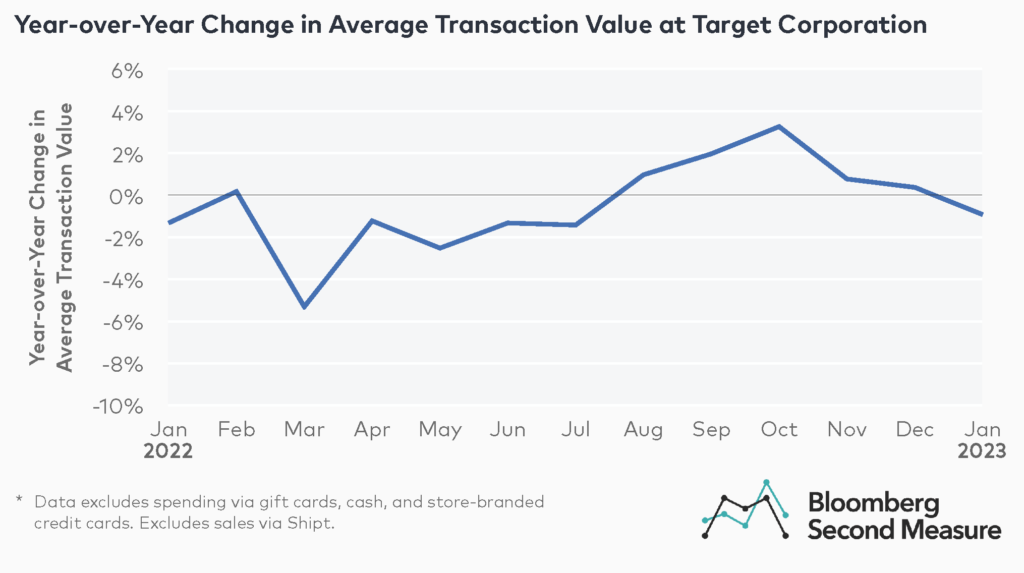After months of challenges related to excess inventory as well as changing consumer trends amid high inflation, Target Corporation (NYSE: TGT) surprised investors with its announcement that its revenue for the fiscal quarter ending on January 28, 2023 (FY22 Q4) increased 1 percent compared to the previous year. While consensus expected sales to drop year-over-year, Bloomberg Second Measure’s transaction data-based scaled revenue projection prior to Target’s earnings call indicated year-over-year revenue growth.

Notably, Target’s fourth fiscal quarter includes the holiday season, which is historically an important part of the year for big-box retail. In a recent competitive analysis of holiday spending among major retailers and e-tailers, Bloomberg Second Measure data showed that Target’s year-over-year sales growth during the 2022 holiday season (defined here as November through December) outperformed some superstores including Best Buy and Bed Bath and Beyond, but lagged behind competitors like Walmart and Amazon. An earlier intra-quarter analysis of our consumer transaction data also found that Target’s sales during Black Friday week—a key retail event in the fourth quarter—surpassed sales from the same week in 2021.
Before Target’s earnings surprise, transaction data showed that average transaction values grew year-over-year in the second half of 2022
Along with other major retailers such as Walmart, Target reportedly discounted much of its merchandise in 2022 in an effort to clear inventory. Consumer transaction data shows that for most months in the first half of 2022, the monthly average transaction value at Target was lower compared to the same month the previous year.

However, this trend reversed in the second half of 2022: Target saw slight year-over-year increases in average transaction values for most months from July through December. In January 2023, the final month of the fourth fiscal quarter, the average transaction value at Target decreased 1 percent year-over-year. Notably, Bloomberg Second Measure data excludes sales through Target’s grocery delivery service Shipt.
According to its Q4 earnings call, Target continued to see strong sales for essentials like groceries and household items, but lower demand for discretionary goods such as home decor and apparel. The company is also reportedly planning to launch more private-label brands, which performed well in the recent quarter.
Bloomberg Second Measure launched a new and exclusive transaction dataset in July 2022. Our data continues to be broadly representative of U.S. consumers. As a result of this panel change, however, we recommend using only the latest post in assessing metrics, and do not support referring to historical blog posts to infer period-over-period comparisons.
